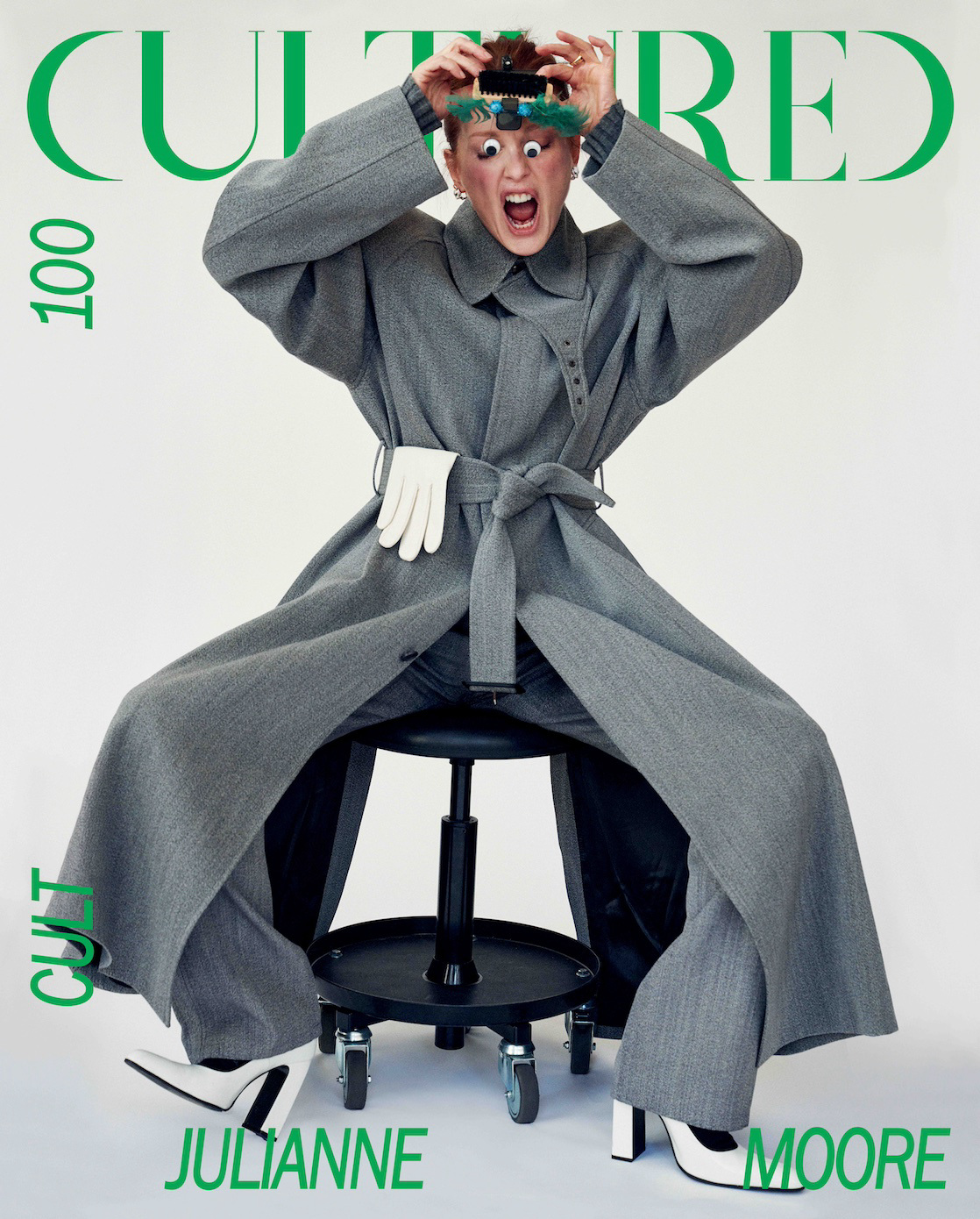
CULTURED’s second annual CULT100 issue spotlights 100 names across five generations who are shaping our culture in real time. Some members of the list are household names; others have been working behind the scenes to make possible the encounters that stop us in our tracks. They are all thinking big, sharing generously, and embodying courage. We hope their work makes you a little braver, too. Order your copy of the CULT100 issue here.
Let me level with you at the top of this: I was nervous to interview Julianne Moore. Not because I’m a sweaty-palmed, starstruck fanboy, but because she’s one of the most seminal actors of her generation, with the kind of prestige that needs no fanfare, and I didn’t want to resort to the Hollywood platitudes we’ve all heard a million times. I also didn’t want to ask the insufferable rapid-fire, meme-y questions actors are subjected to these days, when their publicists want the press junket to go viral. You know Julianne Moore, I know Julianne Moore. She’s the thinking person’s movie star.
I have just 30 minutes on Zoom to excavate a 40-year career, which is fine, but she’s played so many roles that fucked me up (for better or worse), that left me emotionally limping from the cinema. I’m interested in Moore’s stealthy brilliance, her ability to zero in on the hairline fractures under the surface of everyday life. After all, our greatest crises rarely arrive as thunderclaps, but in slow, torturous drips.
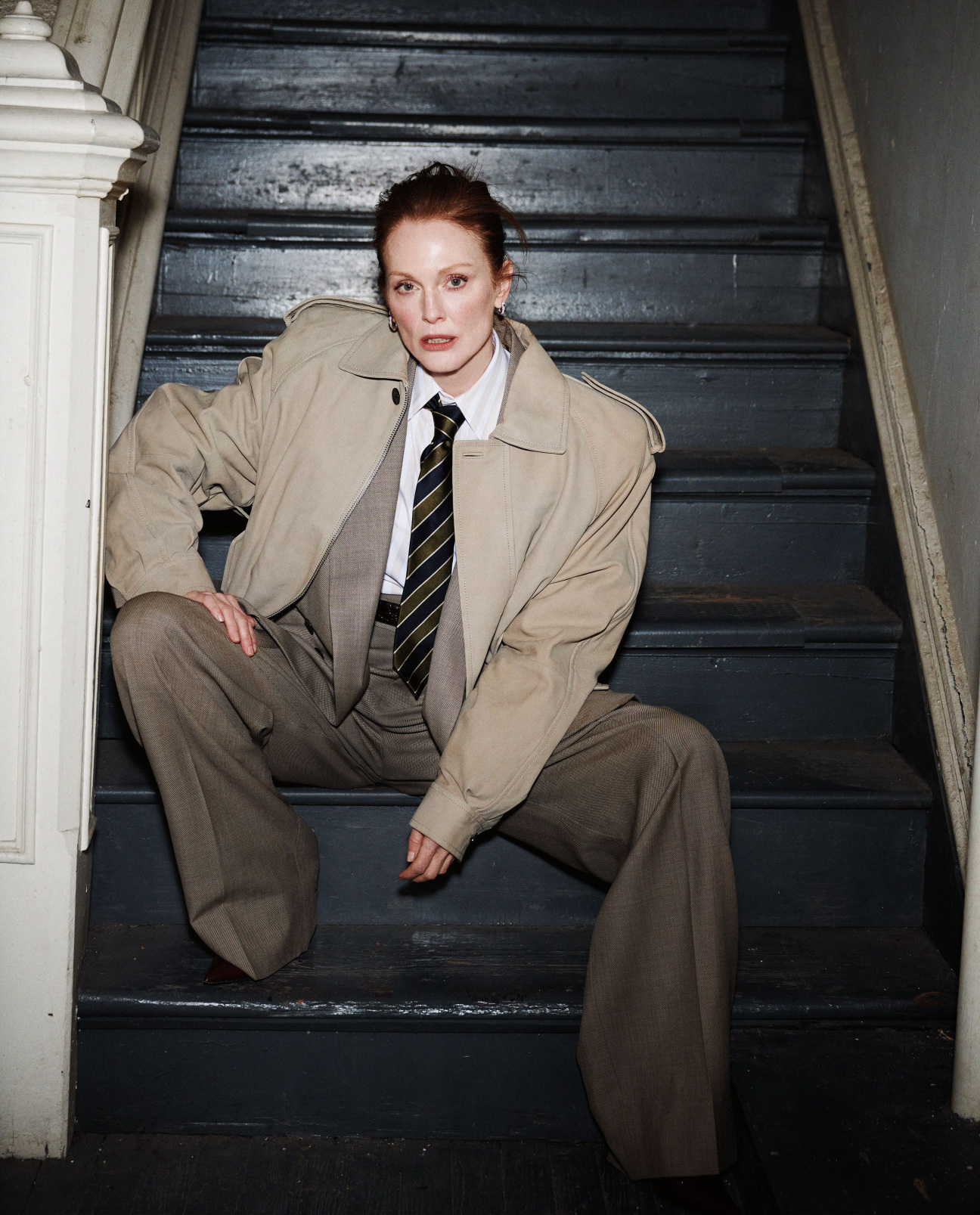
“Not many of us go to the moon, you know?” Moore says, bathed in warm light in her New York home. Despite the typical brutality of the Zoom rectangle, she looks every inch the Hollywood royal while retaining her ineffable indie-darling electricity. “We are not astronauts. There aren’t that many kings and queens. So I’m interested in the drama of everyday life—the lady next to me on the subway, or the family drama we’ve all witnessed.”
There’s something a bit Dr Pepper-y (the old jingle goes, “what’s the worst that could happen?”) about Moore’s oeuvre, setting the table of a manicured domestic life before serving up our sourest fears: What if this marriage is a trap? What if my surroundings are poisoning me? What if I lose all of my memories? The way Moore works, like the way she lives, defies easy explanation.
“I think of myself as a gig worker, always focused on the next thing. The minute something is over, it’s done.” —Julianne Moore
I am, nevertheless, in pursuit of explanations, but how do you ask an Oscar-winner who’s spent four decades in Hollywood real questions and get real answers? Part of Moore’s cosmic appeal is that she doesn’t so much perform as dissolve into a role, a masterful erosion of self. The flame of red hair is a constant, but everything else is shed in pursuit of the truth of the story, and the woman at its heart. As reconnaissance, I read through her colossal IMDb page (which includes her back-to-back upcoming projects—the limited series, Sirens, out in May, and the June thriller Echo Valley), reveling in a filmography soaked in suburban malaise and private devastations: husbands who leave, children who die, houses that feel more like prisons than homes.
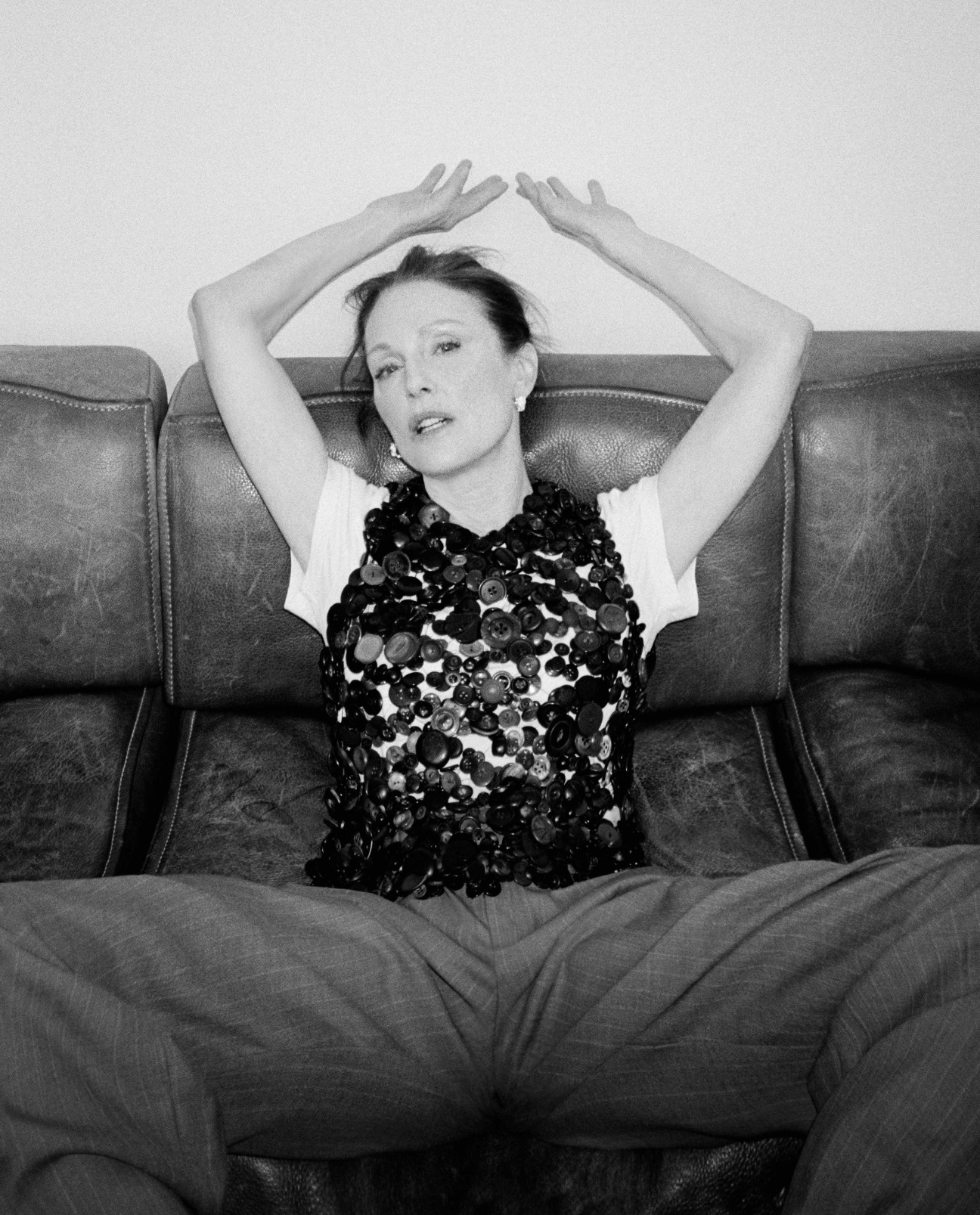
I’m struck, as I scroll, by how many times she’s bowled me over—as a Tanqueray-swilling divorcée in A Single Man; a burdened mother of two in the pastiche swerving melodrama Far From Heaven; a housewife suffocating in 1950s domesticity who struggles to repress her fearsome sexuality in The Hours; an academic who’s excruciatingly aware that her mind is peeling away from her body in Still Alice; or, in 2023’s May December, an eerily girlish and lisping woman who rebrands a scandalously age-inappropriate relationship with a teenage boy as an innocent romance.
Last year’s Pedro Almodóvar–directed drama, The Room Next Door, wove many of these threads together. In it, two women (played by Moore and Tilda Swinton) confront the interlocking forces of female friendship, mortality, and grief. Unlike me, Moore has no interest in reviewing her past work. “I don’t measure my career,” she says offhandedly. “I think of myself as a gig worker, always focused on the next thing. The minute something is over, it’s done.”
She’s certainly no stranger to moving on. Born in North Carolina to a Scottish mother and American military court judge father, the actor had a nomadic childhood—23 moves, a new town and new faces each time. She developed her chameleon-esque skills then, learning the art of entering any new situation as a blank slate: “I become anything,” she says. “I start from a place of neutrality, always, and then I flip around.”
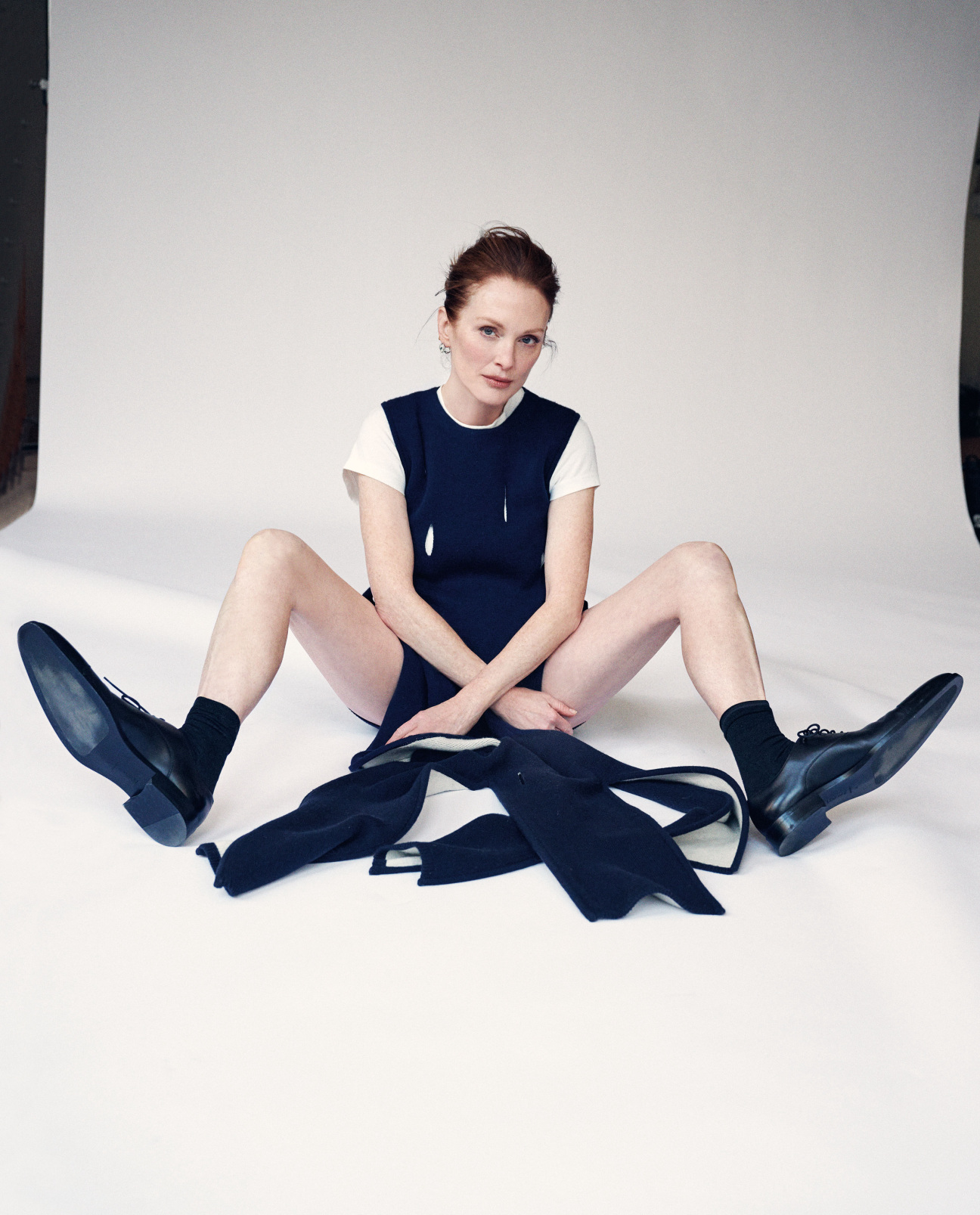
At 16 in Frankfurt, Germany, Moore discovered her high school’s drama department and fell head over heels for the theatrical comedy Tartuffe by Molière, her medical and law school aspirations all but forgotten. She planned, much to her parents’ apprehension, to graduate and join a conservatory. Ultimately, they compromised on Boston University’s fine arts program. After securing her BFA, Moore landed a recurring role as twins in the soap opera As the World Turns, a small-screen bootcamp that won her a Daytime Emmy at 27.
“My choices aren’t about playing women who suffer. They’re about playing real people.” —Julianne Moore
I ask about the physical choices she’s made in her roles—the breathy lisp in May December, her Swiss enunciation in The Big Lebowski, and my favorite, her baby-pitched drawl as Carol in Todd Haynes’s 1995 suburban nightmare Safe. The psychological drama is a critique of overconsumption and societal complacency—Moore’s initial uncontrollable cough reveals itself as a deeper allergy to the modern world, an undefinable affliction that forces her to seek out new-age remedies. I know Moore is tired of talking about her age and physical appearance, but I read that she lost weight for the role, making herself quite ill in the process. Is she willing to give that much of herself to a character today? “That was the first time I wanted to lose weight and look frail. I probably only lost 12 pounds, but for someone my size it was significant,” she recalls. “My blood pressure got really low, and my energy levels changed. I don’t want to do that to myself [again].”
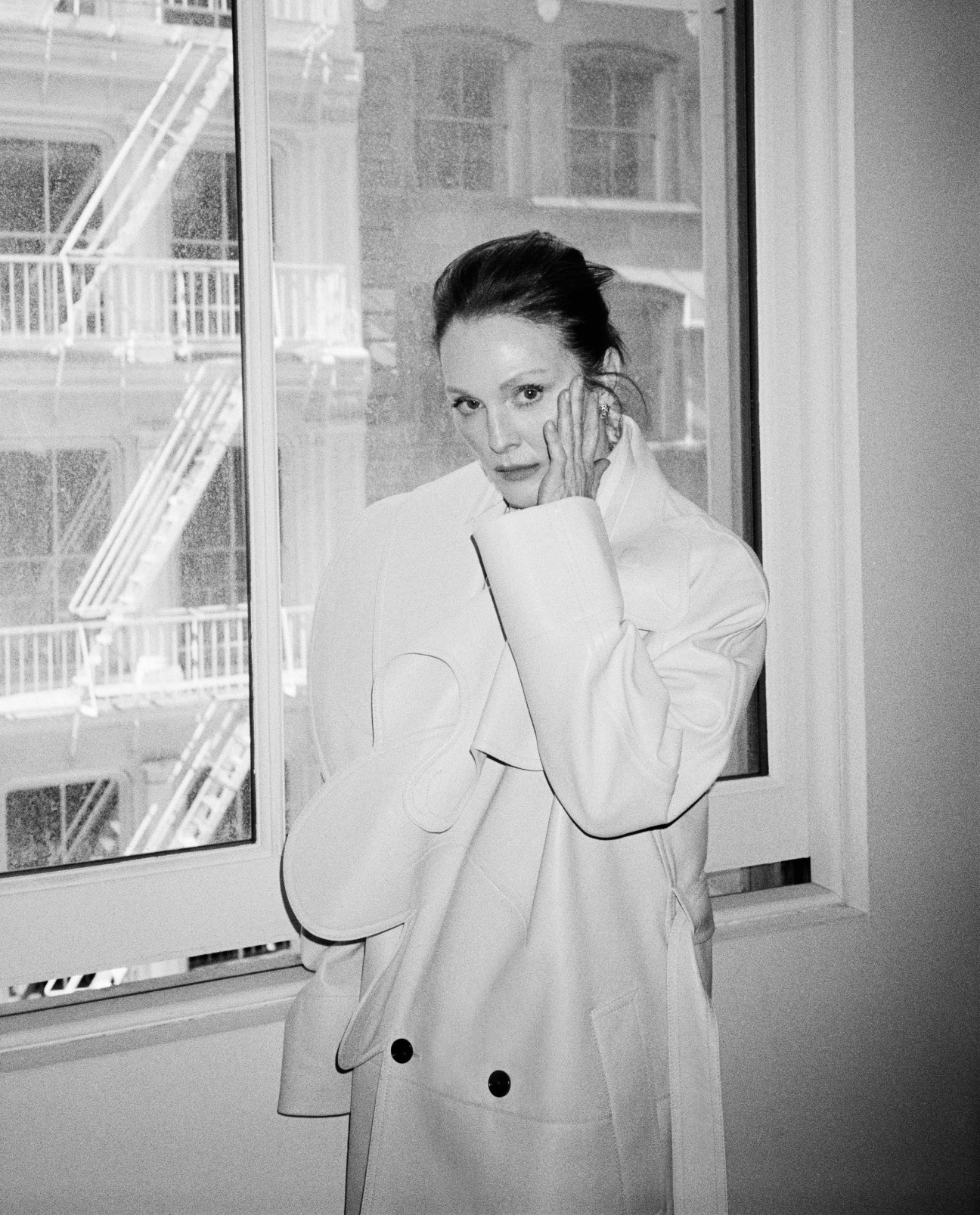
When I wonder aloud whether these choices are conscious or instinctive, Moore stiffens almost imperceptibly. “I think there’s a misnomer that what we do is unconscious. It’s always conscious. When you’re an actor, you’re reading the script to get a sense of the character, but you’re also thinking, How does she move? How does she speak? How does she see herself? How does she want the world to see her? There can be a sense of allowing things to happen to you [on a set], but you’ve done a lot of preparation to get there. Actors are very, very aware of what they’re creating.”
Moore’s body of work does seem to feed into our macabre but persistent fascination with female suffering. Audiences love to watch a glamorous woman courting a nervous breakdown as we munch our popcorn, collecting emotional traumas like trophies. Despite the depth of her performances, people still, frustratingly, refer to “Julianne Moore movies” as their own genre: Woman Falls Apart.
“I think at this point in my career—because I’ve made, like, 70-something movies—people want to create a through line,” she muses. “But my choices aren’t about playing women who suffer. They’re about playing real people.”
Of course, there is no single way to encapsulate a career as vast as Moore’s. It feels somewhat glib, almost rude, to attempt to sum up her cinematic breadth—some of the most poignant scenes ever committed to film—in my allotted word count, but that’s the rub. She, the multidimensional movie star; me, the hack hoping to bottle her lightning over a Zoom call.
Each time she appears on our screens, Julianne Moore performs a sort of a symphony, an aria that articulates the shared complexities of being alive. To play it all back at once creates a din; to harmonize 40 years of notes is to flatten them. Moore’s characters don’t just give into suffering—they reckon with it, leaving audiences to grapple with the question, Who am I now, after this? When the timed Zoom ends, I ask myself the same.
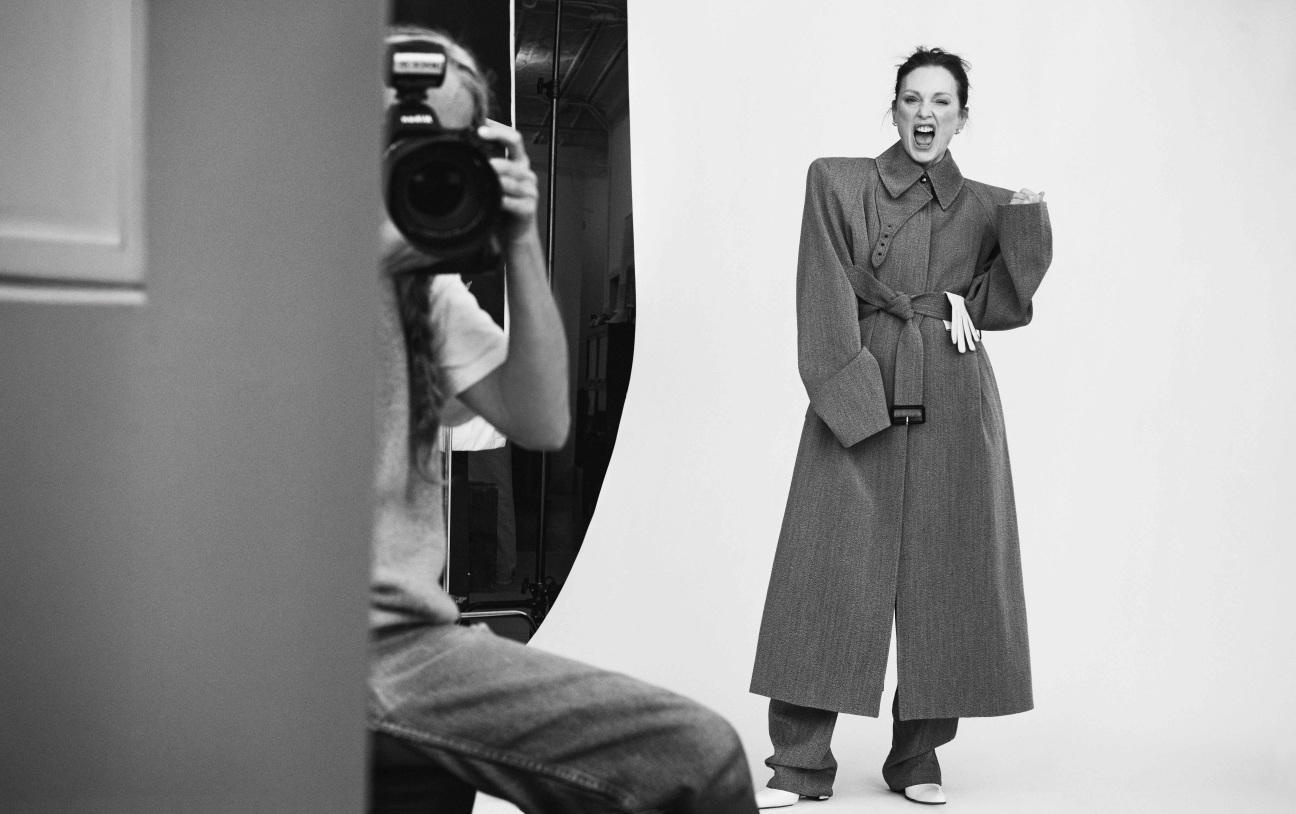
THE CULT100 QUESTIONNAIRE
What keeps you up at night?
Worry. Worry about my children, about their health or their mental well-being or whether I said something that wasn’t the right thing to say in a parenting moment. Then I wake up the next morning and say, “I hope what I said was okay, I hope that was helpful.” That’s the kind of stuff that keeps me up.
What’s something people get wrong about you?
That I’m a serious person, especially around my work.
What’s one book that got you through an important moment of your life?
When I was 10, we moved to Alaska and it was a big move for everyone in my family. It was traumatic because it was different, and Alaska back in the day was a very different place. That was the summer I read Little Women, and I would read the part where Beth died over and over again, and I couldn’t stop crying. It was such an emotional release for me. The book was very much about female self-determination, and it was really formative for me to realize that you could have big feelings and also determine your own destiny.
If you could attribute your success to a single quality of yours, what would it be?
I’m really persistent and I try really hard. I’ve never been cool about anything.
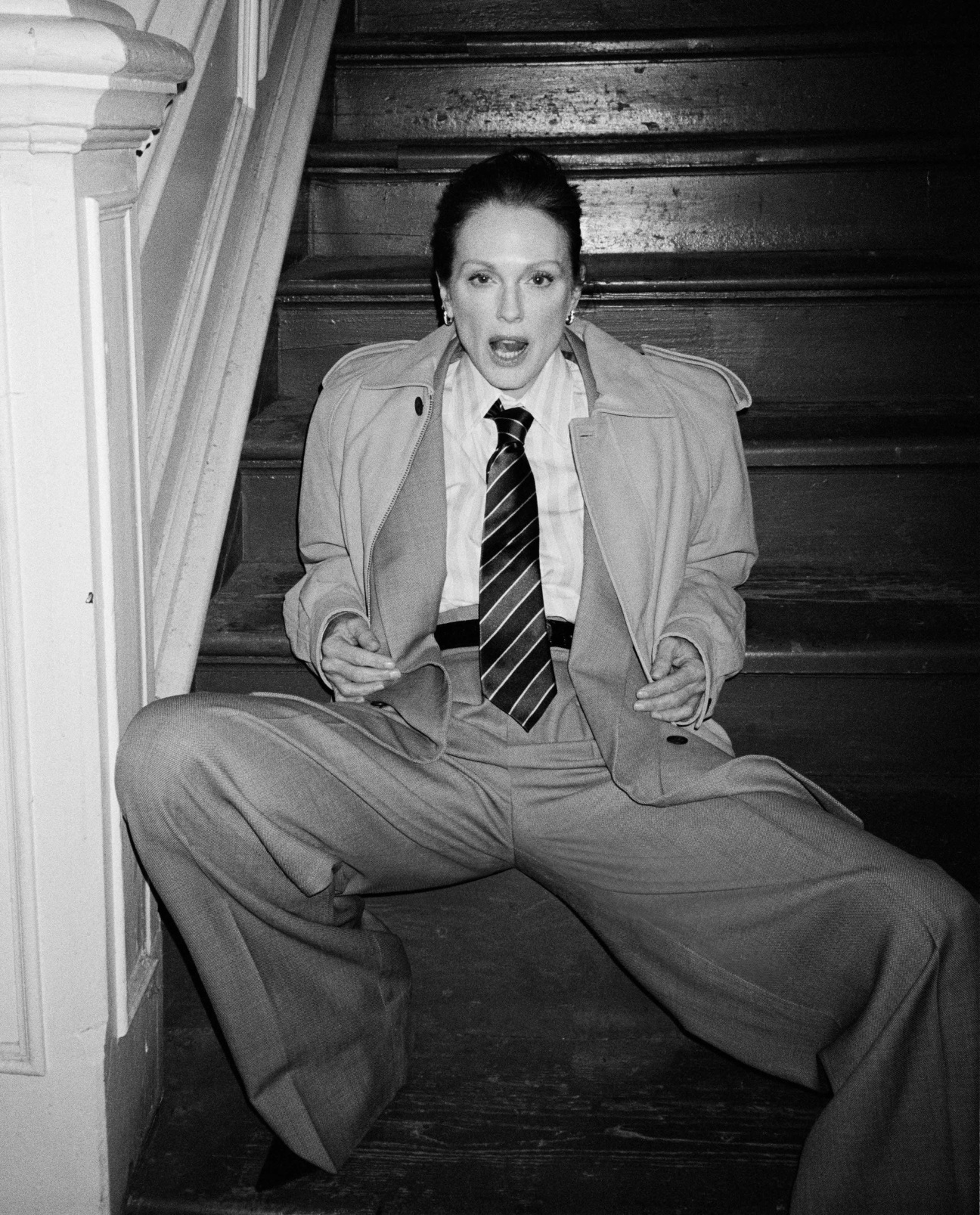
Hair by DJ Quintero for Living Proof at the Wall Group
Makeup by Romy Soleimani
Nails by Gina Eppolito
Production by April Ellis and Andrew Chung
Lighting Direction and DP by Clay Howard-Smith
Digital Tech by Anthony Miller
Styling Assistance by Chloe Kerins and Cyrenae Tademy
Makeup Assistance by Jackie Piccola
Lighting Assistance by Angelo Capacyach

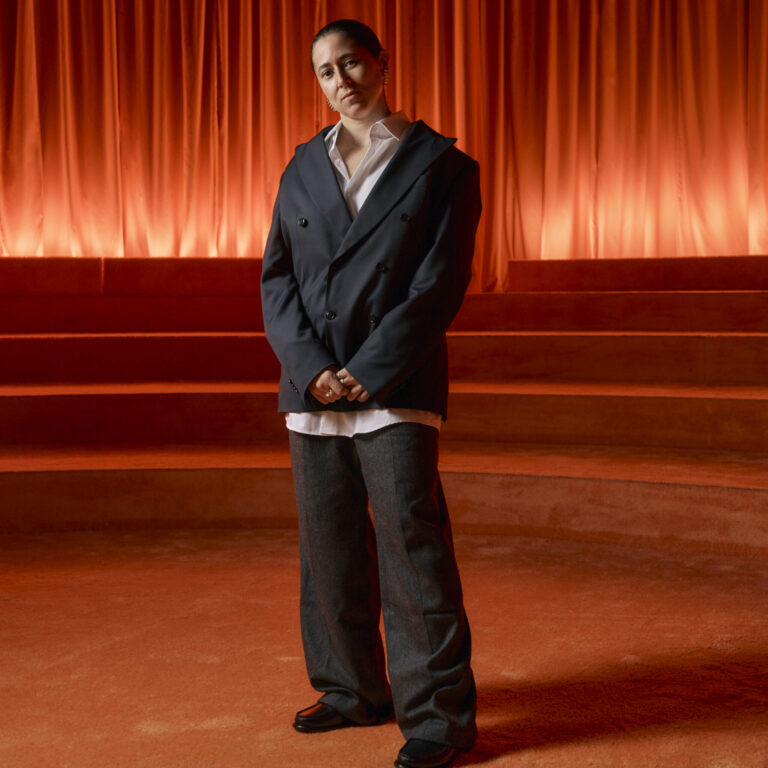
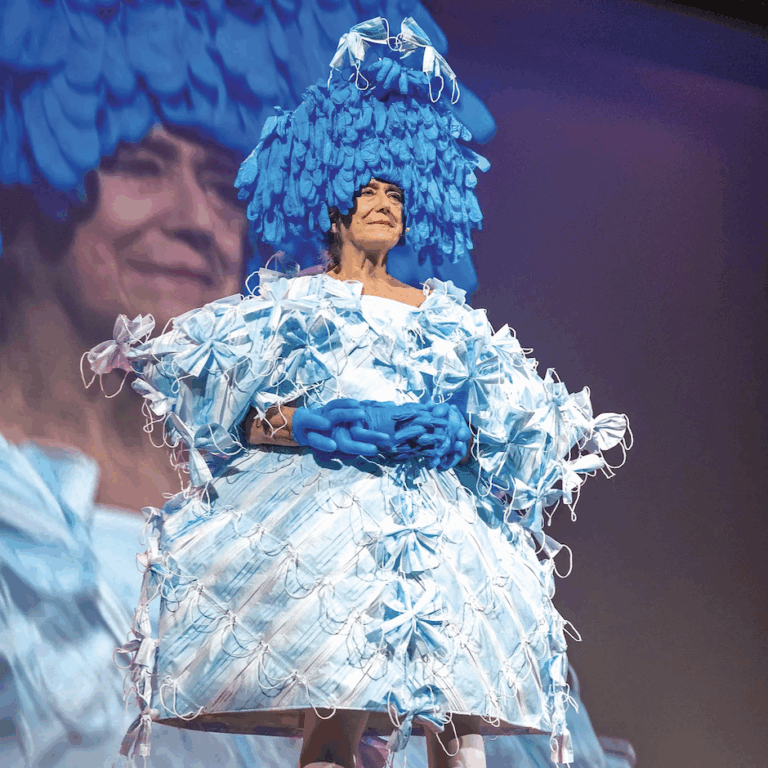
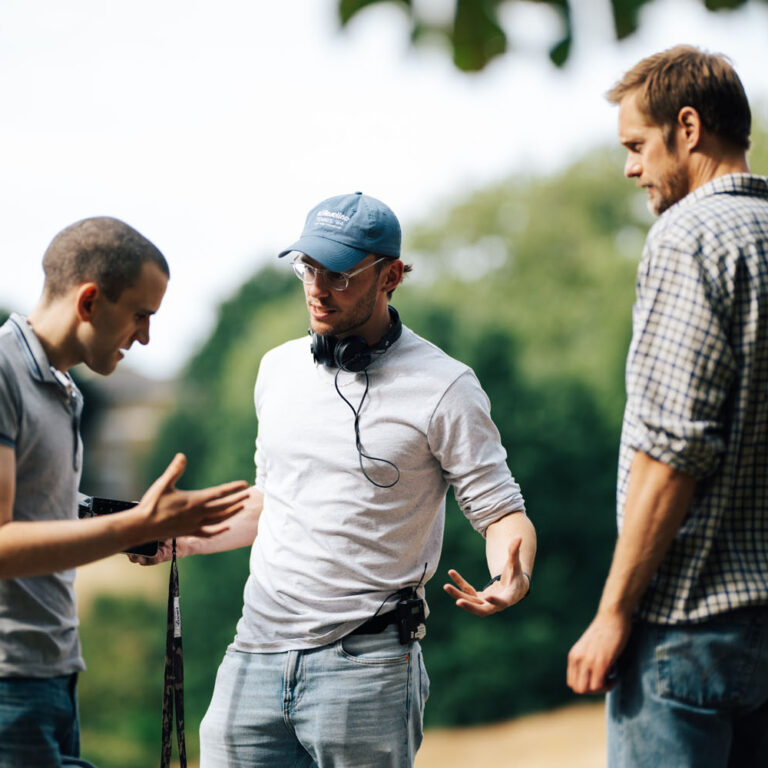
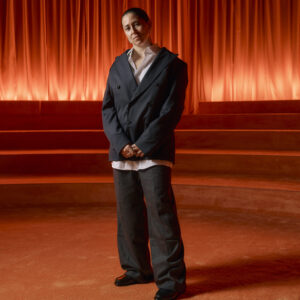
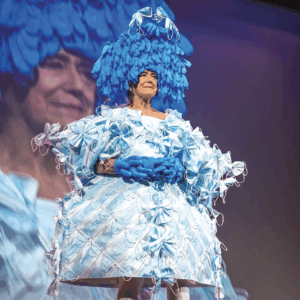




 in your life?
in your life?

